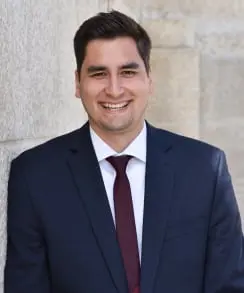 | 1 LU |
 | 1 LU |
In 2019, First Nations voices across Canada spoke at the Assembly of First Nations – Annual General Assembly and expressed support to review how First Nations education infrastructure school standards were being implemented. Through these voices, the Assembly of First Nations began challenging the Government of Canada’s education infrastructure standards that did not reflect the true needs of First Nations students across the country. In recognition of LearningSCAPES 2023 theme The Art and Science Driving the Transformation and the Resiliency track, this presentation will critique and challenge the Government of Canada’s policy on indigenous school standards and how they were amended by First Nations to support First Nations’ cultural, community and learning priorities. Indigenous education has rapidly changed in the last several years through the creation of transformative agreements, technological enhancements, new learning services and the surge of language and culture programming. While non-indigenous schools in Canada have recognized these advancements and built new schools with modern learning environments, First Nations were forced to use outdated education infrastructure standards that were recognized as the worst standards in Canada. Over the last three years, First Nations asserted control over these education infrastructure policies and demanded change. This presentation will examine how First Nations across Canada now have the autonomy to incorporate and determine new school space based on their Nations priorities, such as language and culture rooms, knowledge keeper spaces, outdoor learning areas, enhanced counselling space, and inclusive education needs instead of outdated Western models that limit indigenous world views.
Presentation Details – The presentation will highlight the complexities of indigenous education spaces by examining existing/previous policies in Canada and transitioning into policy solutions. This will primarily be completed through a PowerPoint presentation that will also include visual examples in the room that will help explain the magnitude of space improvements. The presentation will challenge the attendees to examine or review their current indigenous education infrastructure practices and determine if it is currently meeting their needs.
Details of Presenters – Renee St. Germain is a member of Rama First Nation in Ontario, Canada and is the Director of Languages and Learning at the Assembly of First Nations (AFN). The AFN Languages and Learning Sector advocates on behalf of First Nations in K-12 Education, Post-Secondary Education, Education Infrastructure, and Languages Revitalization and ultimately for First Nations control of First Nations education. Renee is an educator by trade and holds both a Bachelor of Education and a Master of Education through the University of Ottawa. Prior to joining the AFN, Renee worked with the urban Indigenous community in early childhood education through the Aboriginal Head Start in Urban and Northern Committees programming. Through this work, Renee noticed a need to create space for Indigenous students who were transitioning from culturally rich environments into the public school system. This led Renee to work on professional development for elementary teachers and on how to incorporate space for Indigenous learners into their classroom.
Bram Lerat is a Senior Policy Analyst with the Assembly of First Nations (AFN) Languages and Learning Sector and has been working in education infrastructure since 2018. He has contributed to various files with the AFN including inclusive education, post-secondary education, Treaty education, and the northern and remote file. Bram graduated with a Bachelors of Arts in Political Science from the University of Regina in 2015 and continued his studies with the University of Saskatchewan, graduating with a Masters of Arts in Political Studies in 2017. Prior to joining the Assembly of First Nations, Bram worked for the Government of Saskatchewan’s Ministry of Trade and Export Development on various files relating to economic development, tax policy, and innovation policy. Bram is a proud member of Cowessess First Nation.
Learning Objectives:

Bram is a Special Advisor with the Assembly of First Nations (AFN) Languages and Learning Sector and has been working in education infrastructure since 2018. He has contributed to various files with the AFN including inclusive education, post-secondary education, Treaty education, and the northern and remote file. Bram graduated with a Bachelors of Arts in Political Science from the University of Regina in 2015 and continued his studies with the University of Saskatchewan, graduating with a Masters of Arts in Political Studies in 2017.

Renee is a member of Rama First Nation in Ontario, Canada and is the Director of Languages and Learning at the Assembly of First Nations (AFN). The AFN Languages and Learning Sector advocates on behalf of First Nations in K-12 Education, Post-Secondary Education, Education Infrastructure, and Languages Revitalization and ultimately for First Nations control of First Nations education. Renee is an educator by trade and holds both a Bachelor of Education and a Master of Education through the University of Ottawa.
This track focuses on Resiliency and addresses how learning environments support the development of students and communities that have the strength and flexibility to withstand adversity and adapt to change. The COVID-19 pandemic demonstrated the essential role that schools have in stabilizing communities during a time of crisis. How do schools support the development of strong community culture among teachers and students? How do schools foster physical and mental health and wellness to ensure all are ready and supported to learn? How do we create learning environments that are strong in intent yet adaptable to change? How do we learn from what does not work and further, learn to take risks daily to expand our comfort zone? What can we learn from research and our responses to past events to inform how to build toward a resilient future where we can withstand what crises and challenges the future brings? Topic areas, seen through the lenses of both Art and Science, include sustainability, physical and mental health, community, school climate and culture, safety, and security.
Primary Core Competency
Design of Educational Facilities: Acts as a resource to the design team in providing ongoing guidance and support to ensure that the emerging and ultimate design aligns with the established community vision, education goals, future programming, written design standards, best/next practices and education policy.